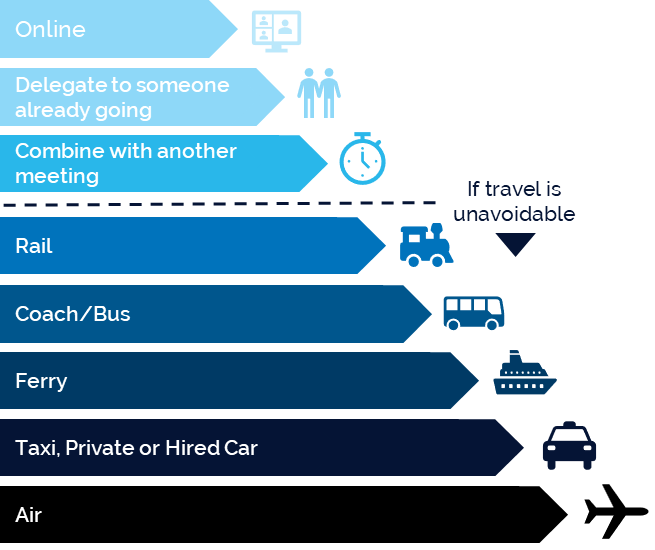Business travel
There are many ways to reduce business travel and make your essential trips more environmentally friendly.
Alternative modes of travel
If the above hierarchy has been conducted and travel is deemed necessary, it must be taken by the most cost-effective and least environmentally negative mode of travel.
Our order of preference for selection of the mode of travel is:
- Rail
- Coach or bus
- Ferry (where applicable)
- Taxi, private or hired car
- Air
Rail
Travelling by rail commonly has the least environmental impact. Where travel is deemed necessary, colleagues, students and managers are expected to choose rail travel where possible.
Taxi, private or hired car
Car journeys to local destinations are strongly discouraged. Where use of a car is required, hired vehicles, University-owned and car club vehicles must be considered in the first instance.
Air
Travelling by air commonly has the most significant environmental impacts, therefore should be avoided where possible.
- Where air travel is deemed essential to conduct the activity, non-stop flights or routes with the minimum number of connecting flights must be considered first.
- Air travel to mainland United Kingdom destinations can only be used in exceptional cases.
- Business and First Class travel have the most significant financial and environmental impact compared to other classes of travel.
- Business and First Class travel are not permitted for any journeys unless agreed in exceptional circumstances.


